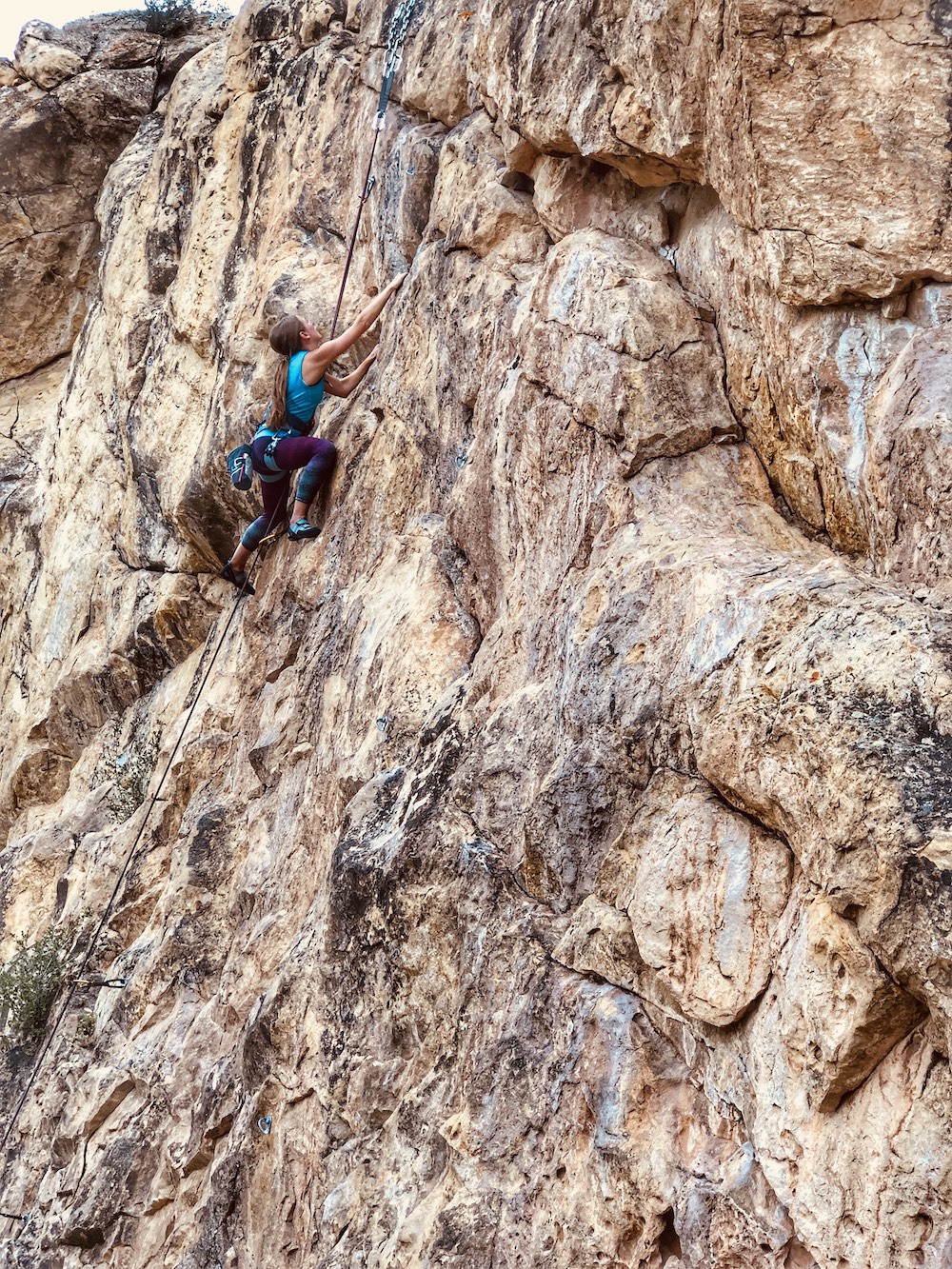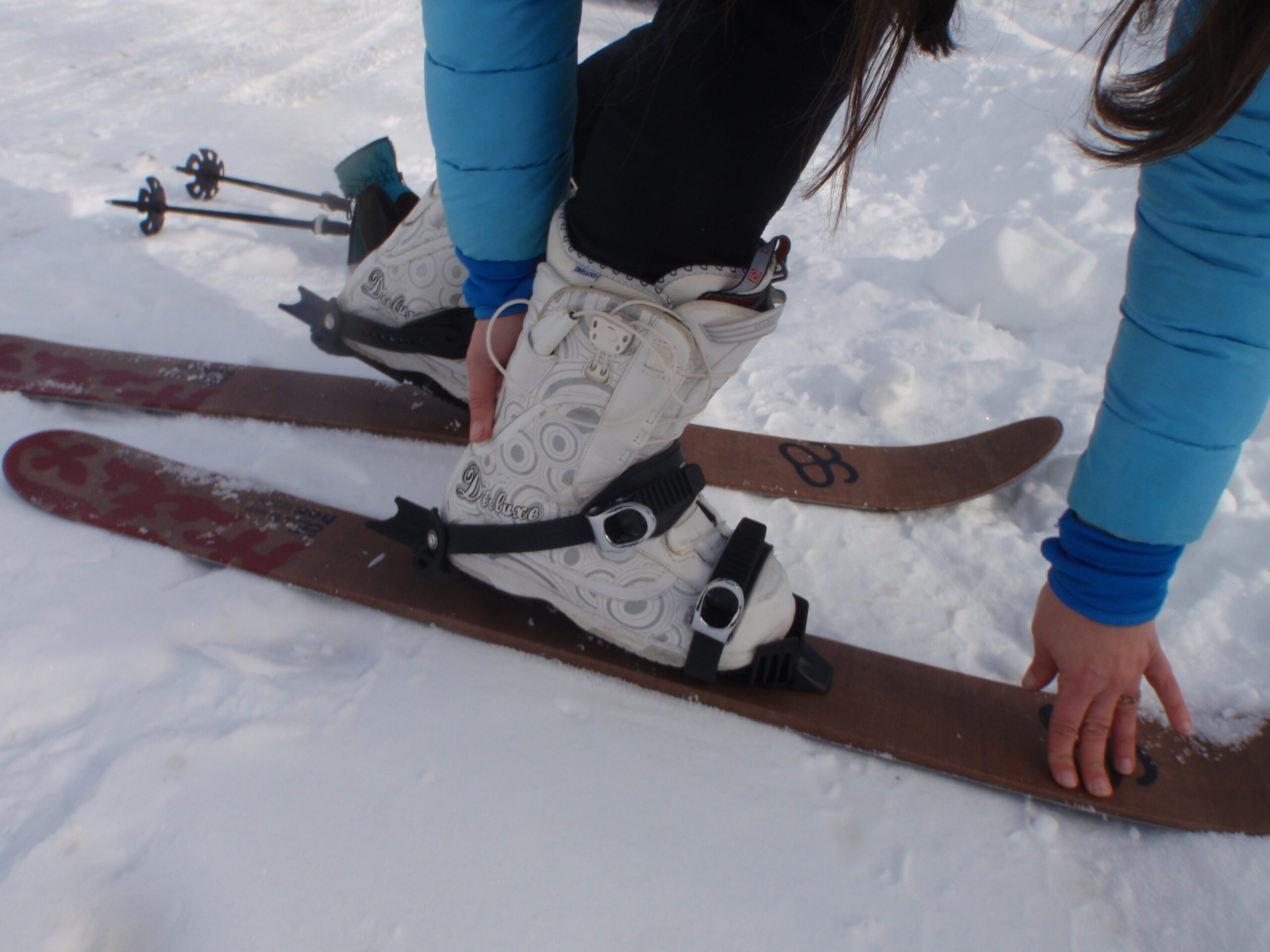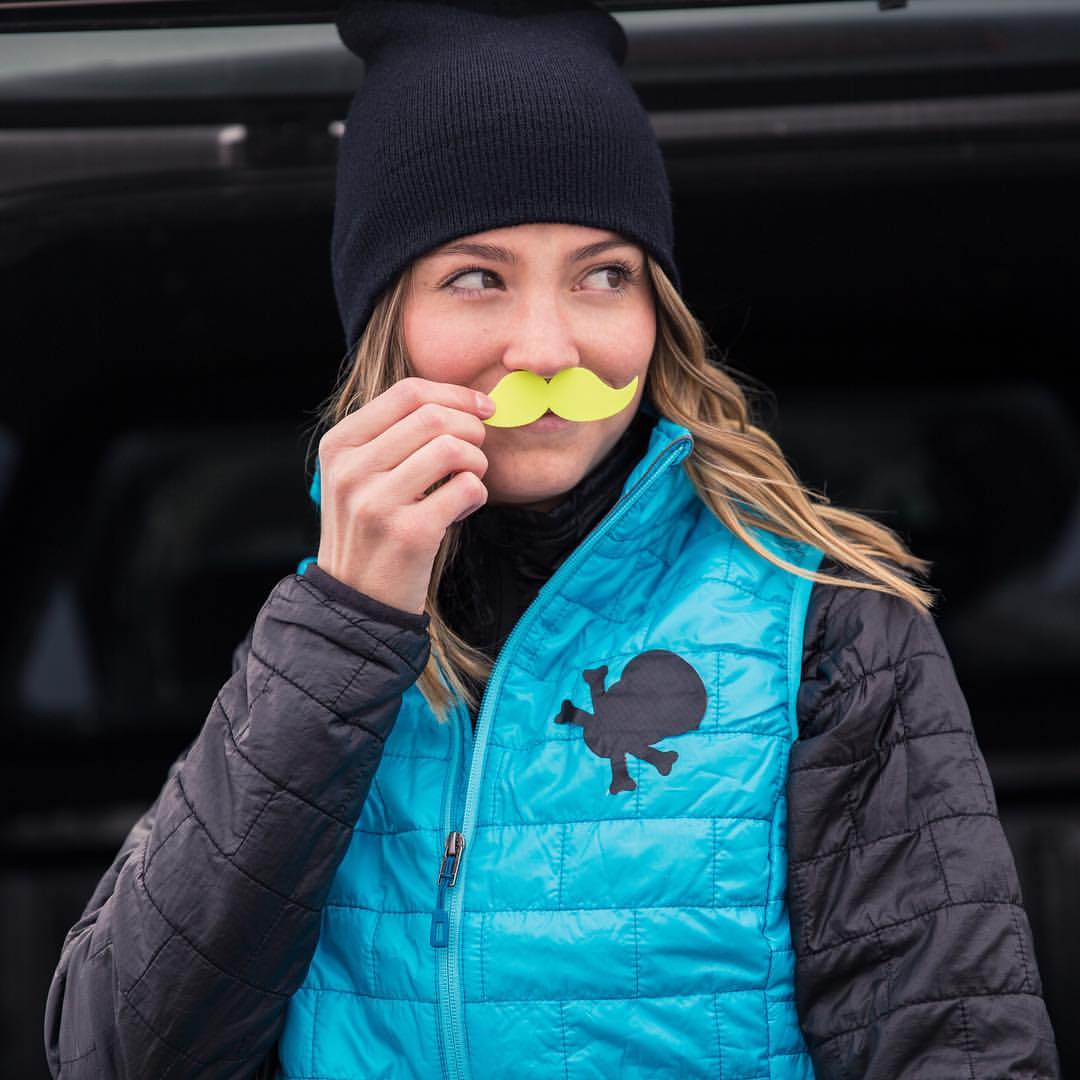Disclaimer: I am not much of climber. I have worked within the outdoor and outdoor travel industry for a decade, often covering the female perspective.
While some outdoor sports have made strides in becoming inclusive to minorities, climbing has notably held onto its white-male privilege (and “locker room” talk). A laundry list of racist and misogynistic-named routes are proof of this unfortunate truth. Slavery Wall in Ten Sleep Canyon changed on June 23, 2020.
At first glance the July 1, 2020 op-ed article by Rock and Ice, “It’s Time to Change Offensive Route Names” appears to be on the right track by suggesting crudely named routes, re: Pumped Full of Semen and Skull Fuck should be changed. Of course this perspective is undeniably valid and shared widely. They should be changed swiftly along with a 4 Floors of Whores and Nipples and Clits—to name a few.
In fact, there are currently 200+ routes flagged as “bad” on Mountain Project.
Rather, the white male author, Andrew Bisharat completely failed to address racially demeaning nomenclature as a climbing problem.
“I’ve heard a bunch of people frame the route-name debate around who is offended or “excluded” by vulgar and offensive route names, but I haven’t heard anyone mention children in these arguments,” said Besharat in the op-ed. “I would like to add them as well, because a good test for whether a route name passes the “offensive” test is if it’s something you’d be uncomfortable hearing your own kid talk about climbing.”
If 1% of climbers are black, we can only assume that this argument is framed around white children and how a white parent would feel if “Preteen Sex” fell from little Peter’s lips. It completely misses the point and further asserts white privilege. These names are sending a message to non-white (and male) climbers: you are not welcome, at the very least, and you are lesser, at worst. Is that the message the climbing community wants to project? Apparently,
Bisaharat, a senior editor and long-time climbing thought leader, ends the article with what feels like an anti-conclusion:
“Until then, I say change ‘em if they are offensive. Whatever they’re called, they’re still the same perfectly great climbs.”
“Climbing trips aren’t the carefree escapes from reality for me that they are for you,” said an Atlanta-based climber and black woman, Dominique Davis in R&I publisher’s apology and resignation letter as a result of the op-ed. “I’m Black no matter where I go, and with that comes the reality that the towns many of these crags are located in are not as welcoming and accepting of people that look like me. When there’s a Confederate flag hanging in a gas station, I know I’m not going to risk my safety by stopping there. It has been scary to see the comments on social media and how many climbers are comfortable with keeping racist and oppressive language in our sport. It makes you think about who’s standing next to you at the crag.”
Publisher Duane Raleigh was correct to resign, as Bisarhat’s op-ed should have never made it out the door. Raleigh’s public confession to racist route naming as a young man and acknowledgement of the harm it caused was also correct.
Here is an excerpt of his apology and resignation letter:
…”While it is long past time to change offensive route names, I was wrong to approve that article because I haven’t, and Rock and Ice hasn’t, done the work to educate myself about the issues, namely a system that favors me, a white male American, at the expense of people of color, in particular Black Americans. I should have sourced this topic to someone who has lived the experiences on the receiving end. Having a white man write on the topic was an error.
For the people who didn’t find anything wrong with the article, please keep an open mind and consider the following points.
I have been wondering why the climbing population is about one percent Black. The answer is in the mirror. I grew up climbing in the rural South 45 years ago (I’m 60 now), and was part of a white boys’ club. We were young and could climb and enjoy risks because we had freedoms that non-white America does not have. We were part of a culture that I regret. White privilege let our “fraternity” exist, and we could be inappropriate, and do just about anything without consequences. Broadly speaking, the white, male-dominated club still exists worldwide.
One of those privileges was putting up routes and getting to name them. When I approved the column, “It’s Time to Change Offensive Route Names,” I was thinking in part of my past, because I gave two routes from that era 40 years ago racist and appalling names. The most egregious used the N word, and I am deeply sorry. Later, when given the chance by a guidebook author, I changed that name, and recently the other on Mountain Project. I should have acted sooner.
Many climbers—notably white—have wrongly believed that route names are sacrosanct. Yesterday morning I spoke with Dominique Davis, a Black climber and mother of two in Atlanta, who is trying to make changes. “It’s disheartening,” she said, “because we’ve gotten so much pushback from the climbing community to change route names, and from the admins on Mountain Project. They aren’t listening, or they just don’t care.”
Going forward, I will work to be a true ally for all minorities, and will strive to fully understand and support the Black Lives Matter movement. I will put the resources of this publication behind the effort, and ask the outdoor industry to join us in offering staff diversity training, providing scholarships for BIPOC climbers and giving voice to underrepresented communities, as a start. The time for fence sitting, letting other people do the work, and being a part of the problem, is over. And the problem is more than just one article and route names. The problem is systemic and reaches into all aspects of society…”
Read the full letter.








